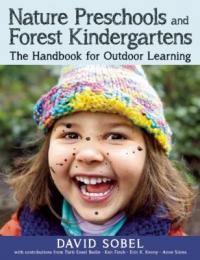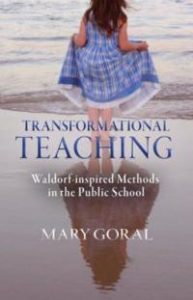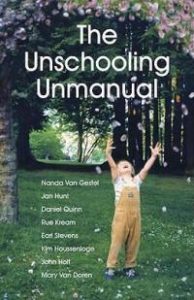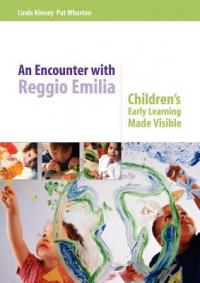As summer approaches its end and students prepare to go back to school, some are returning to classrooms that look very different from what we traditionally think of as “school.” Be sure to check out this month’s lobby display, which explores alternative approaches to schooling!
 Nature Preschools and Forest Kindergartens: The Handbook for Outdoor Learning, by David Sobel
Nature Preschools and Forest Kindergartens: The Handbook for Outdoor Learning, by David Sobel
Growing in popularity in response to the increased institutionalization and test-driven teaching of early childhood education, nature preschools and forest kindergartens emphasize nature-based, spontaneous learning for young children. This deceptively slender volume provides an extensive comprehensive guide to forest kindergartens, covering everything from the theoretical foundation and historical background of forest kindergartens to current practices and curriculum approaches used by these schools. This book also addresses some of the practical issues inherent in the operation of a forest kindergarten, such as policy planning and program evaluation, physical facilities (including location, utilities, and zoning), and funding sources and fundraising, for those readers interested in establishing a new forest kindergarten. Finally, in addition to providing case studies of several forest kindergartens in the United States, this book describes a number of best practices and responds to common parental concerns.
 Transformational Teaching: Waldorf-inspired Methods in the Public School, by Mary Goral
Transformational Teaching: Waldorf-inspired Methods in the Public School, by Mary Goral
Waldorf education is a holistic and creative approach to schooling. This book is a detailed case study of a group of teachers in Kentucky who employ Waldorf-inspired teaching methods, exploring the ways in which this group of teachers applied Waldorf-style teaching to their classrooms. In addition to these case studies, this book provides an introduction to Waldorf education, including its origins and philosophy, as well as exploring some of the features of Waldorf classrooms and discussing how Waldorf schools build community and engages both students and teachers.
 The Unschooling Unmanual, eds. Jan Hunt and Jason Hunt
The Unschooling Unmanual, eds. Jan Hunt and Jason Hunt
Unschooling is an approach to education that steps away from traditional methods of education, allowing the child to direct their own learning. This slim volume provides an introduction to the unschooling philosophy, aimed at people exploring the idea of unschooling rather than being a guide on how to go about implementing an unschooling approach. Composed of essays from unschoolers, this book examines topics such as what unschooling really is, why parents might choose unschooling, and how children learn, in addition to accounts of personal experiences with unschooling.
 An Encounter with Reggio Emilia: Children’s Early Learning Made Visible, by Linda Kinney and Pat Wharton
An Encounter with Reggio Emilia: Children’s Early Learning Made Visible, by Linda Kinney and Pat Wharton
The Reggio Emilia approach is centered around respecting children’s rights, giving children agency and the capacity to construct their own learning. This book focuses on the use of documentation, recordkeeping, and assessment in the Reggio Emilia approach, arguing that documentation is not the final product, but rather an ongoing record of the process of learning that enables the children to feel more visible and listened to resulting in increased confidence. Centered around the case study of a Reggio Emilia school in Scotland, this book explores the effect that their documentation approach has had on both the children’s learning and development as well as on relationships with parents, administrators, and the wider community.
 Understanding the Montessori Approach: Early Years Education in Practice, by Barbara Isaacs
Understanding the Montessori Approach: Early Years Education in Practice, by Barbara Isaacs
Montessori education focuses on child-centered early childhood education, wherein children are seen as active learners who need choice and independence. This book provides a strong general overview to the Montessori approach, explaining the history of Montessori education, discussing child development from the Montessori perspective, and describing how Montessori schools are organized and how to set up an environment conducive to learning, the ways teachers can facilitate learning without directing it, and the benefits of self-directed learning contrasted with the outcome-oriented perspective that dominates today’s society. Examples of Montessori schools from around the world are provided to illustrate how a Montessori classroom might look at different grade levels, to give examples of how learning experiences vary across different age groups.
 The Homeschooling Book of Lists, by Michael Leppert and Mary Leppert
The Homeschooling Book of Lists, by Michael Leppert and Mary Leppert
For parents considering homeschooling, this book is a wealth of resources. In addition to reasons to (or not to) homeschool and answers to FAQs, this book provides lists of resources in an astonishing array of areas. Long lists of available resources are provided for different homeschooling approaches, religions, types of curricula, individual subjects, special needs, tutoring, and test prep. This book also provides information related to post-secondary education and addresses common concerns about preparing a homeschooled child for university. Formatted entirely as lists, this book presents potentially dense and overwhelming information in an easy and approachable manner.
For these and other titles about alternative education, such as distance education, free schooling, year-round schooling, and individual schools that have applied radical approaches, such as Summerhill School and Sudbury Valley School, visit the OISE Lobby Display on the ground floor of the OISE building. To borrow these books, please stop by the OISE Library Service Desk and we’ll retrieve it for you.
